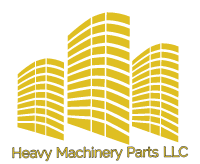Preventive maintenance is one of the most crucial strategies to ensure the longevity and efficiency of heavy machinery. However, many businesses still overlook key practices, leading to costly breakdowns and unnecessary downtime. This article will cover the top five most common mistakes in preventive maintenance of heavy machinery and how to avoid them to keep operations running smoothly.
Error 1: Not Having a Defined Preventive Maintenance Plan
One of the biggest and most common mistakes is not having a preventive maintenance plan in place at all. Without a set schedule and clear procedures, machinery is exposed to unnecessary wear and tear, which can ultimately lead to significant failures or even irreversible damage.
Sskipping preventive maintenance is essentially a death sentence for any machine. Every piece of machinery requires attention to ensure it runs efficiently and safely. A well-defined plan outlines what maintenance needs to be done, when, and by whom, helping prevent unexpected breakdowns and costly repairs.
Error 2: Not Adapting the Maintenance to Each Machine Type
Another common mistake is assuming that all machines require the same type of maintenance. Although there are general guidelines applicable to most equipment, each machine comes with manufacturer-specific recommendations. Ignoring these can lead to improper maintenance and shortened machine lifespan.
Highlighted the importance of customizing maintenance for each type of machinery. While general procedures like fluid changes and component checks apply across the board, manufacturers provide specific instructions that should not be overlooked. Adapting the maintenance plan ensures that each piece of equipment gets the care it needs according to its particular design and operational demands.
Error 3: Insufficient or Inadequate Documentation of Performed Maintenance
Failing to properly document preventive maintenance is another significant error. Skipping this step can lead to confusion about what has been done, which parts were serviced, and when the next maintenance check is due. Proper documentation is essential for tracking a machine’s maintenance history and ensuring it stays on schedule.
Using templates or standardized forms to document maintenance is vital. This documentation serves as a record of the work completed and can help identify recurring issues that need further attention. In addition, having comprehensive records supports the continuity of maintenance tasks, especially when different personnel are involved.
Remember that by subscribing you can get free maintenance templates for your heavy machinery.
Error 4: Untrained Personnel Performing Maintenance
Preventive maintenance might seem simple on the surface, often involving routine tasks like checking fluid levels or taking performance readings. However, it’s essential that these tasks are performed by personnel who are properly trained to understand if the machine’s performance is within normal parameters or not.
The importance of having trained staff cannot be overstated. Even though most preventive tasks are straightforward, it takes knowledge to interpret readings correctly and recognize potential problems before they escalate. Ensuring that personnel have the proper training can significantly reduce the chances of mistakes during maintenance checks.
Don’t forget, we also offer a wide range of spare parts for heavy machinery, so feel free to inquire about any replacement needs you may have. Just click on contact us.
Error 5: Postponing Scheduled Maintenance
One of the most frequent errors is delaying scheduled preventive maintenance to avoid interrupting ongoing operations. While this may seem like a way to maintain productivity, it can result in more harm than good. Postponing maintenance leads to increased wear on critical parts, and over time, this can cause costly repairs or even permanent damage.
Delaying maintenance often results in unnecessary wear and tear on key components. While it might seem like a small inconvenience to pause operations for maintenance, the long-term benefits far outweigh the risks of running machinery under stress. Keeping to the scheduled maintenance timeline ensures that machines continue to perform optimally without unexpected breakdowns.
How to Avoid These Mistakes and Prolong Your Machinery’s Life
Preventive maintenance is a fundamental aspect of keeping heavy machinery in top condition. Avoiding these common mistakes—such as neglecting to establish a plan, failing to customize maintenance for each machine, improper documentation, relying on untrained personnel, and delaying maintenance—can help maximize the lifespan of your equipment. By addressing these issues, companies can ensure that their machinery remains reliable and efficient, reducing downtime and avoiding unnecessary costs.
